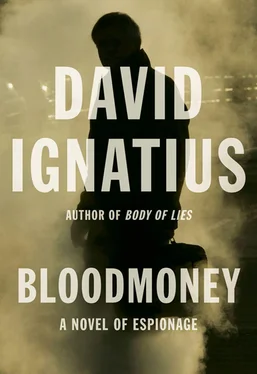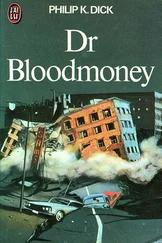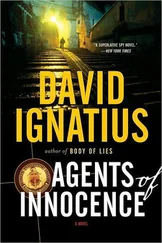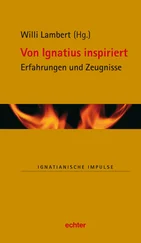David Ignatius - Bloodmoney
Здесь есть возможность читать онлайн «David Ignatius - Bloodmoney» весь текст электронной книги совершенно бесплатно (целиком полную версию без сокращений). В некоторых случаях можно слушать аудио, скачать через торрент в формате fb2 и присутствует краткое содержание. Жанр: Шпионский детектив, на английском языке. Описание произведения, (предисловие) а так же отзывы посетителей доступны на портале библиотеки ЛибКат.
- Название:Bloodmoney
- Автор:
- Жанр:
- Год:неизвестен
- ISBN:нет данных
- Рейтинг книги:4 / 5. Голосов: 1
-
Избранное:Добавить в избранное
- Отзывы:
-
Ваша оценка:
- 80
- 1
- 2
- 3
- 4
- 5
Bloodmoney: краткое содержание, описание и аннотация
Предлагаем к чтению аннотацию, описание, краткое содержание или предисловие (зависит от того, что написал сам автор книги «Bloodmoney»). Если вы не нашли необходимую информацию о книге — напишите в комментариях, мы постараемся отыскать её.
Bloodmoney — читать онлайн бесплатно полную книгу (весь текст) целиком
Ниже представлен текст книги, разбитый по страницам. Система сохранения места последней прочитанной страницы, позволяет с удобством читать онлайн бесплатно книгу «Bloodmoney», без необходимости каждый раз заново искать на чём Вы остановились. Поставьте закладку, и сможете в любой момент перейти на страницу, на которой закончили чтение.
Интервал:
Закладка:
Omar rounded this last curve and looked: There was nothing at all. Even the rubble had been stripped. You could see where the walls of the compound had been and bits of debris that were useless even to the scavengers. There was nobody to live here, and nobody even to rebuild it.
He closed his eyes and tried again to imagine the way it had been, but this time the image would not come. It was gone, with his family. The pieces of their flesh had decomposed into this ground. He bent down and kissed the earth. The dust caked his lips, but he kissed the ground again and wept. For a long time, he could not stand up. There was no power in his legs, because of the sadness and the emptiness of loss. What gives us the strength to move? It is anger.
Across the vale he saw the home of his cousin Najib. The compound was still standing. He walked the half mile to the gate and knocked on it until a gnarled man emerged, his beard gray, his faced creased by sun and suffering. It could not be that this wizened man was his cousin; they were nearly the same age. His eyesight had gone, and he did not recognize Omar. He welcomed the stranger in the Pashtun way, invited him into the courtyard, sat him down with a drink. He had a satellite television, powered by his generator, and he turned on the picture, to be polite, while they talked.
Cousin Najib wanted to know who this visitor might be. The professor explained that his relatives had lived in Makeen long ago but moved away. They lived in Quetta now; that was where most of the refugees had moved during the decades of war. The visitor named a family who lived a mile or so away, and said they were his people. He asked about neighbors who had been friends of his father and brothers.
What about Hakimullah from across the valley? Dead, with all his family. And Majid, what about him? He was dead, too. His wife had survived but she had moved away after the drones attacked. She lived in Peshawar now, or maybe Bannu. And Ahmed Wali? He survived the drones, but he was killed in the mountains. His boys swore revenge, but they were dead now, too. This was a land of ghosts, said the host. The people were all gone; the ones like him who pretended to live, they were ghosts, too.
Cousin Najib put on his glasses. He studied the face of his visitor-short-haired, beardless, his face seemingly unmarked by this harsh world.
“I know you,” said the bearded man. “You are Omar. We played together when we were boys. Your brothers were Karimullah and Nazir. Your father was Haji Mohammed. I know you.”
“You are mistaken,” answered the visitor. “Omar is dead. He died with his family in the drone attack. I am another.”
When he returned to Islamabad, the professor went to the head of his department and asked for a few weeks’ leave. He said that he had a promising research project on which he needed to concentrate. He didn’t trust the security of the computers at the university, so he bought a new one, into which he could plug his flash drive and parse the names and numbers that he had assembled so painstakingly. It was a jigsaw puzzle of vengeance. You had to fit the pieces together just so, and then you glimpsed the pattern and the picture was revealed.
In the culture from which Dr. Omar had emerged, there were rules as precise in their way as the symbolic logic of computers. There was itbar, which meant trust, and was the bond between equal men and the foundation of dignified life. There was nang, which was honor, and badal, which was the personal code that required that a blow to that honor to be answered by an equal blow, bloodshed by bloodshed. Without this reciprocal balance, the world would have no order and life would be meaningless.
A special obligation for revenge was applied in the case of meerata, which was the annihilation of the male members of a family. In such cases, the tribe would set the houses of the culprits afire and drive them from the country and kill them, one by one, until the score was settled. The tor, the black of shame, could only be converted to spin, or white, by death. The cycle was one of purification, and it would end with the peace known as melmastia, the generous spirit in which the just man was able to forgive the wrong done to him. But not until the balance of honor had been restored.
The professor knew very well who had killed his family and ravaged the other clans that made up his world. It was the Central Intelligence Agency. They had devised this means of assassination from the sky; they did it in secret, so they claimed, though they boasted about it all the while. The worst of it was that they took these actions from the safety and security of great distance. They were cowardly: They never looked their victims in the eye; they never heard the screams. This was inhuman, the professor thought; it required a calculated response.
And so the professor had pondered how he might make these assassins feel the same fear that the people of his valley had felt for all these years. He was not at war with the world. He was a Muslim, but he was not passionate about his faith. He did not want to be like the jihadists who boasted of their violent deeds in videos and on the Internet. They were no better than the Americans; they thought they were God’s chosen ones. They talked about the virgin girls who awaited them in heaven, how they would be “rocketed to paradise.” When they looked at pornography, they said they were getting ready for the joys of martyrdom. The professor might use these jihadists because he had no choice, but he did not admire them. They did not understand the balance of honor, the gundi, which makes civilized life possible even in the terrible wilderness of the Tribal Areas.
The professor had begun his work, but it was not finished. He understood that when he kissed the ground on which his family had died. There was more saz, more blood money, still to be paid. He knew that it would have to end someday, just as it had started, but he didn’t know how. When was the saz enough? He wished his father were still alive to explain it to him.
He traveled to Europe once more, to contact a friend in Belgium. It was a short trip, only two nights. He stopped in Paris on the way back and spent a day consulting for a French bank that had invested in a large agricultural project in the Sindh and was having difficulty repatriating its profits. He even gave a thought to visiting the American Embassy, off the Place de la Concorde, just to look into the eyes of the employees. But they might see him, too, and photograph him, and that would reopen a file somewhere. So he sat on a park bench off the Avenue Gabriel, a hundred yards from the embassy entrance, and watched the people come and go through the heavy metal door.
22
Thomas Perkins invited his new energy analyst to the morning meeting where he planned each day’s trading strategy with his lieutenants. Through his windows, the London morning sky was royal blue, accented by the few thin clouds that scuttled west to east across the expanse of glass. The south end of Mayfair was arrayed below, with the shops of St. James’s Street to the east and the silky lawns of Green Park to the west. It was like inhabiting a cocoon spun of gold thread, this penthouse office. To remain atop this fine building, a person would consider any reasonable offer of assistance, especially if he were assured that his actions would be legal and, more than that, a service to his country.
Perkins was at his desk. Facing him were four big screens, mounted two-by-two on the wall, chronicling the U.S., British, Japanese and European markets. Bloomberg trading screens surrounded his desk on three sides: the left screen displayed Alphabet Capital’s order flow for that day’s trading; the middle one showed graphical information about securities and markets of special interest; the right screen displayed a half dozen instant-message chats, with securities dealers who handled the firm’s business and with other useful informants.
Читать дальшеИнтервал:
Закладка:
Похожие книги на «Bloodmoney»
Представляем Вашему вниманию похожие книги на «Bloodmoney» списком для выбора. Мы отобрали схожую по названию и смыслу литературу в надежде предоставить читателям больше вариантов отыскать новые, интересные, ещё непрочитанные произведения.
Обсуждение, отзывы о книге «Bloodmoney» и просто собственные мнения читателей. Оставьте ваши комментарии, напишите, что Вы думаете о произведении, его смысле или главных героях. Укажите что конкретно понравилось, а что нет, и почему Вы так считаете.












